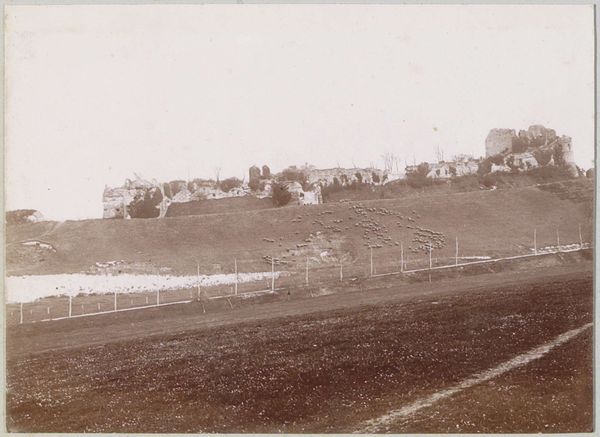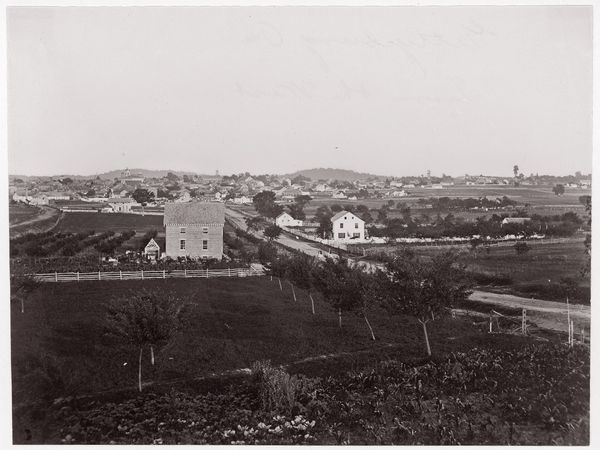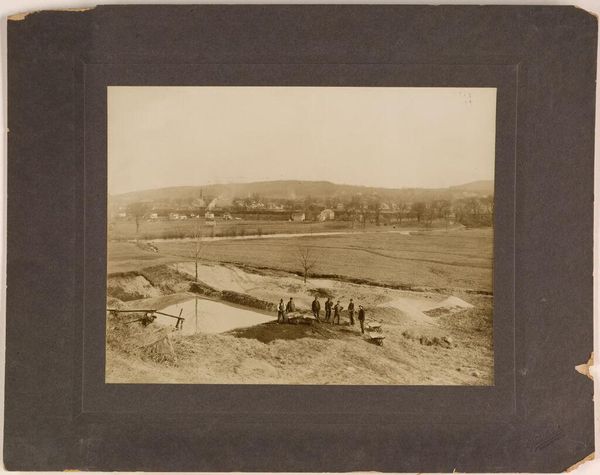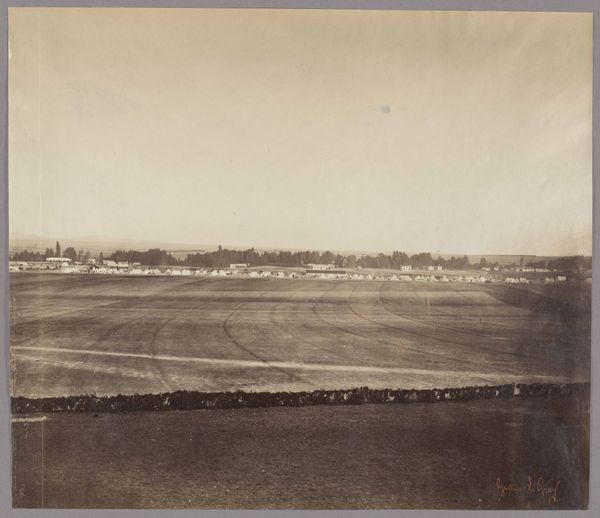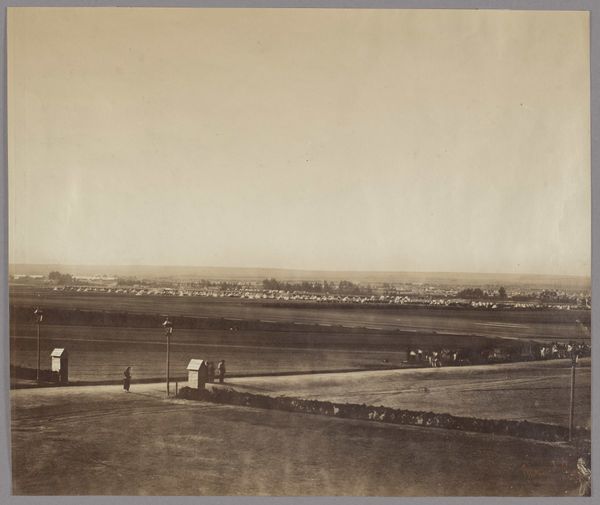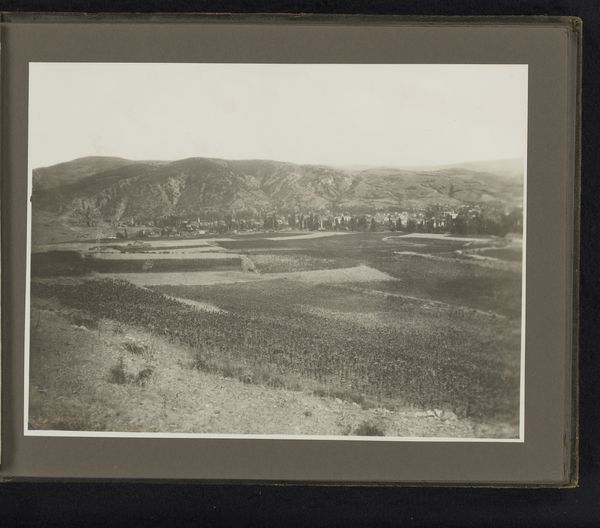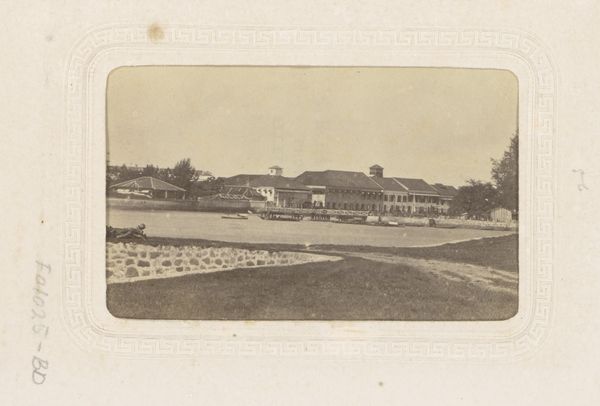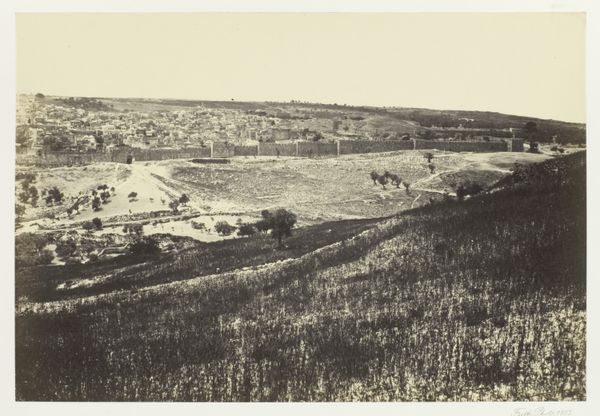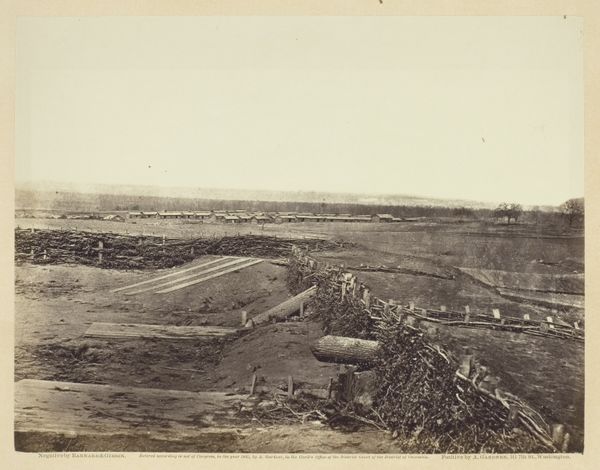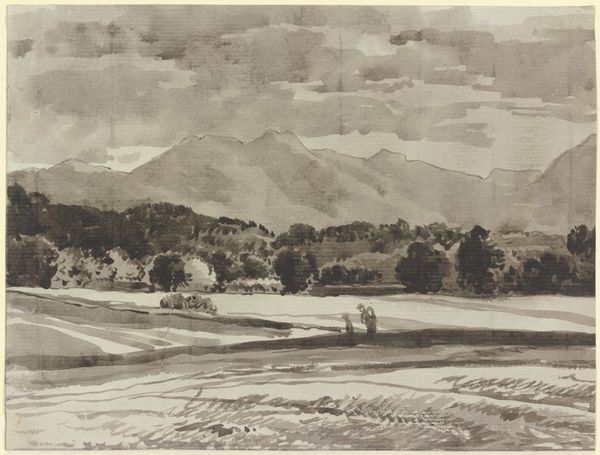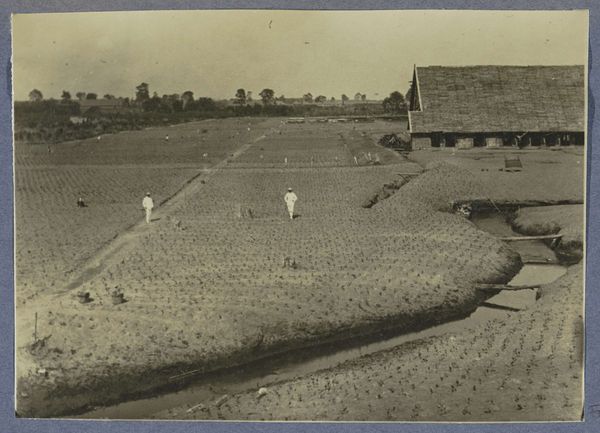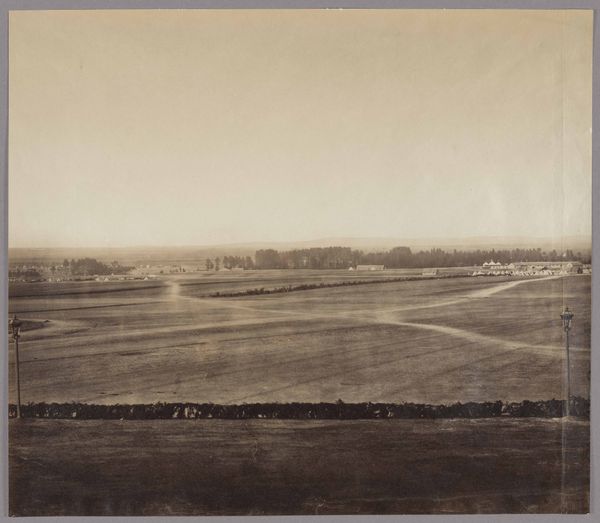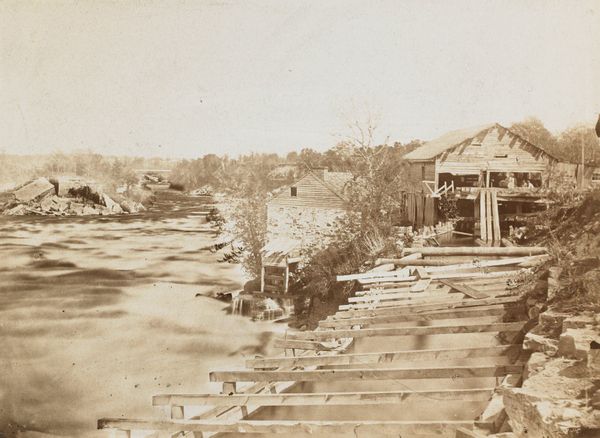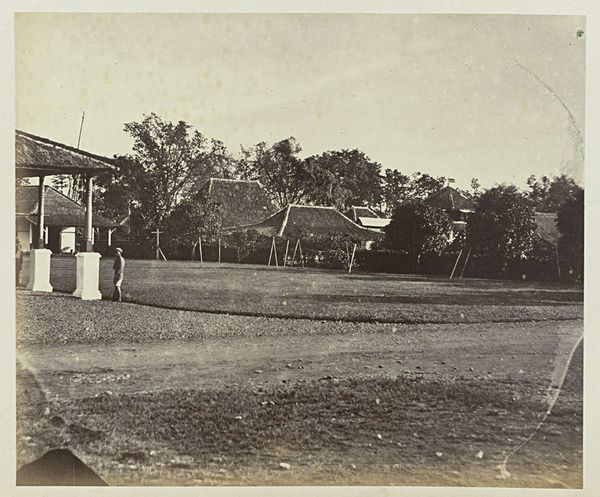
Dimensions: height 70 mm, width 82 mm
Copyright: Rijks Museum: Open Domain
Editor: So, here we have Delizy's "Landschap in Aquitanië met in de verte het Kasteel van Marzac" from 1904, housed at the Rijksmuseum. It seems to be a photograph with the qualities of a watercolor or other "plein-air" work, almost muted in its tones. It has me thinking about the landscape as seen from the overlook... what do you make of it? Curator: This piece strikes me first and foremost as a document of labor and land use. See how the fields are meticulously divided and cultivated. The very act of photographing this scene speaks to a particular mode of production: the photographer, the camera, the developing process, each representing a distinct form of labor contributing to the creation of this image. What kind of economic forces do you imagine shaping the landscape in 1904 Aquitaine? Editor: I suppose the orderly fields and the castle in the background speak to a hierarchy – agricultural labor organized, perhaps, under a feudal system, even still in the early 20th century? Curator: Precisely! The photograph's composition, the way it frames the castle overlooking the fields, highlights this power dynamic. Consider the material reality of photography itself at this time, the cost of equipment, the time spent in outdoor field shoots to take photos... Photography was certainly a product for specific classes of people. Who then was this work ultimately for, and what meaning did that affect? Editor: I hadn't considered the photographic process itself as a form of labor, and its inaccessibility to a lot of folks at the time. It highlights how access shapes our perspective and representation of even something as seemingly 'natural' as a landscape. Curator: And that's key. Art isn't separate from labor or society; it's produced within a specific material context and its impact reverberates throughout. Editor: I guess I usually focus on the "art" part but thinking about the means of production definitely provides a broader picture, thanks!
Comments
No comments
Be the first to comment and join the conversation on the ultimate creative platform.
